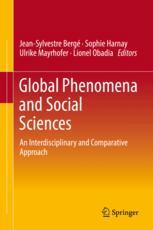

Most ebook files are in PDF format, so you can easily read them using various software such as Foxit Reader or directly on the Google Chrome browser.
Some ebook files are released by publishers in other formats such as .awz, .mobi, .epub, .fb2, etc. You may need to install specific software to read these formats on mobile/PC, such as Calibre.
Please read the tutorial at this link: https://ebookbell.com/faq
We offer FREE conversion to the popular formats you request; however, this may take some time. Therefore, right after payment, please email us, and we will try to provide the service as quickly as possible.
For some exceptional file formats or broken links (if any), please refrain from opening any disputes. Instead, email us first, and we will try to assist within a maximum of 6 hours.
EbookBell Team

4.0
86 reviewsThis book offers new perspectives on global phenomena that play a major role in today’s society and deeply shape the actions of individuals, organizations and nations. In a complex and rapidly changing environment, decision-makers need to gain a better understanding of global phenomena to adapt and to anticipate the evolution of the global context. The authors—ten renowned international scholars of anthropology, economics, law, management and political science—propose an interdisciplinary and comparative approach to social sciences. They analyse how international phenomena, such as globalisation or transnationalisation, transform the disciplines of social sciences from an epistemological standpoint. Explaining what ‘global' means in difference disciplines, the authors analyse several global phenomena that characterise today’s international environment such as the circulation of norms and ideas, the linkages between war and globalization, corporate governance, and the impact of multinational enterprises on sustainable development and poverty reduction. Providing examples of analytical disciplinary approaches and guidelines for decision-makers in a fast-changing global context this book will be useful to scholars and students of anthropology, economics, law, management and political science as well as practitioners in the private and public sectors.